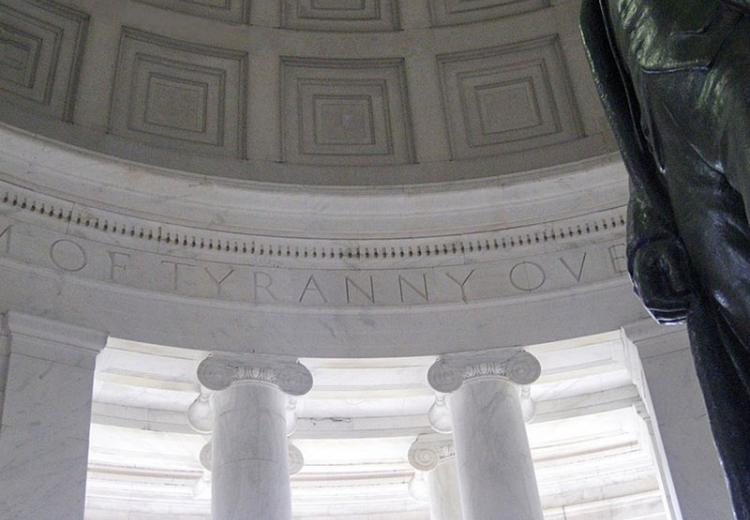Lesson Two. The Tyranny of the Majority

Jefferson Memorial rotunda "...against every form of tyranny over the mind of man."
"The people rule the American political world as God rules the universe. They are the cause and the end of all things; everything arises from them and everything is absorbed by them."
—Tocqueville, Democracy in America, Vol. 2, Pt. 1, Ch.4
In this lesson, students continue their examination of Tocqueville’s argument about the power of the majority and its consequences. Having suggested previously that the majority can crush a minority without even hearing its screams, he elaborates on the dangers of unchecked and unlimited power in democratic America and how to deal with it.
Tocqueville (in a footnote) gives two striking and even shocking examples of majority tyranny at work: the murder of antiwar journalists by a Baltimore mob, and the intimidation of free blacks on Election Day in Philadelphia. With the help of these examples, students will be able to better understand the case Tocqueville is making.
While reiterating the importance of the framework first established by the framers of the U.S. Constitution to check majority will, he suggests that even such good institutional arrangements will only remain strong if the people understand and agree with the reasons for checking and moderating their power.
Justice understood as the common good of the whole society should guide political deliberations. So in this section, as throughout the book, Tocqueville makes a number of rhetorical appeals designed to persuade the people of the need for moderation.
Through a close reading of this section, students will see in detail how a complex primary source is structured, including how key sentences, paragraphs, a footnote, and larger portions of the text contribute to the whole.
This lesson is one part of a three lesson unit on Democracy in America. The three lessons should be taught in sequence, though each lesson can stand on its own. Teachers may link to the full unit with Guiding Questions, College and Career Readiness standards and Background. Lesson 1 aligns with CCSS.ELA-Literacy.CCRA.R.5
Guiding Questions
What role does the public play in checking the power of their government?
Learning Objectives
Evaluate the extent to which an unlimited power of the majority contributes to the health of a democracy.
Construct text-based comparisons to contemporary society through a change over time lens.
